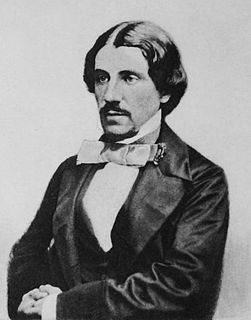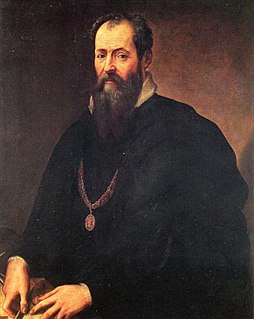A Quote by Henry David Thoreau
On the whole, Chaucer impresses us as greater than his reputation, and not a little like Homer and Shakespeare, for he would haveheld up his head in their company.
Related Quotes
What a wee little part of a person's life are his acts and his words! His real life is led in his head, and is known to none but himself. All day long, the mill of his brain is grinding, and his thoughts, not those of other things, are his history. These are his life, and they are not written. Everyday would make a whole book of 80,000 words -- 365 books a year. Biographies are but the clothes and buttons of the man -- the biography of the man himself cannot be written.
Mr. Balanchine was a great gentleman, and he loved his dancers. He was devoted to his company. He came to the ballet every night, and his presence was felt. It was like the whole company was dancing for him. And if he liked you, he trusted you to be yourself. He didn't try to change you and make you into something you were not.
We are doing well, notwithstanding all our failings and weaknesses; but the Lord would like to have us a little more diligent; he would like us to cleave a little more closely to the things of his kingdom, have more of his Spirit, and know more of him and of one another, that complete and perfect confidence can be restored.
In music, as you develop a theme or musical idea, there are many points at which directions must be decided, and at any time I was in the throes of debate with myself, harmonically or melodically, I would turn to Billy Strayhorn. We would talk, and then the whole world would come into focus. The steady hand of his good judgment pointed to the clear way that was fitting for us. He was not, as he was often referred to by many, my alter ego. Billy Strayhorn was my right arm, my left arm, all the eyes in the back of my head, my brainwaves in his head, and his in mine.
It comforts me to think that if we are created beings, the thing that created us would have to be greater than us, so much greater, in fact, that we would not be able to understand it. It would have to be greater than the facts of our reality, and so it would seem to us, looking out from within our reality that it would contradict reason. But reason itself would suggest it would have to be greater than reality, or it would not be reasonable.
You never hear Jesus say in Pilate's judgement hall one word that would let you imagine that He was sorry that He had undertaken so costly a sacrifice for us. When His hands are pierced, when He is parched with fever, His tongue dried up like a shard of pottery, when His whole body is dissolved into the dust of death, you never hear a groan or a shriek that looks like Jesus is going back on His commitment.
All the poets are indebted more or less to those who have gone before them; even Homer's originality has been questioned, and Virgil owes almost as much to Theocritus, in his Pastorals, as to Homer, in his Heroics; and if our own countryman, Milton, has soared above both Homer and Virgil, it is because he has stolen some feathers from their wings.



































